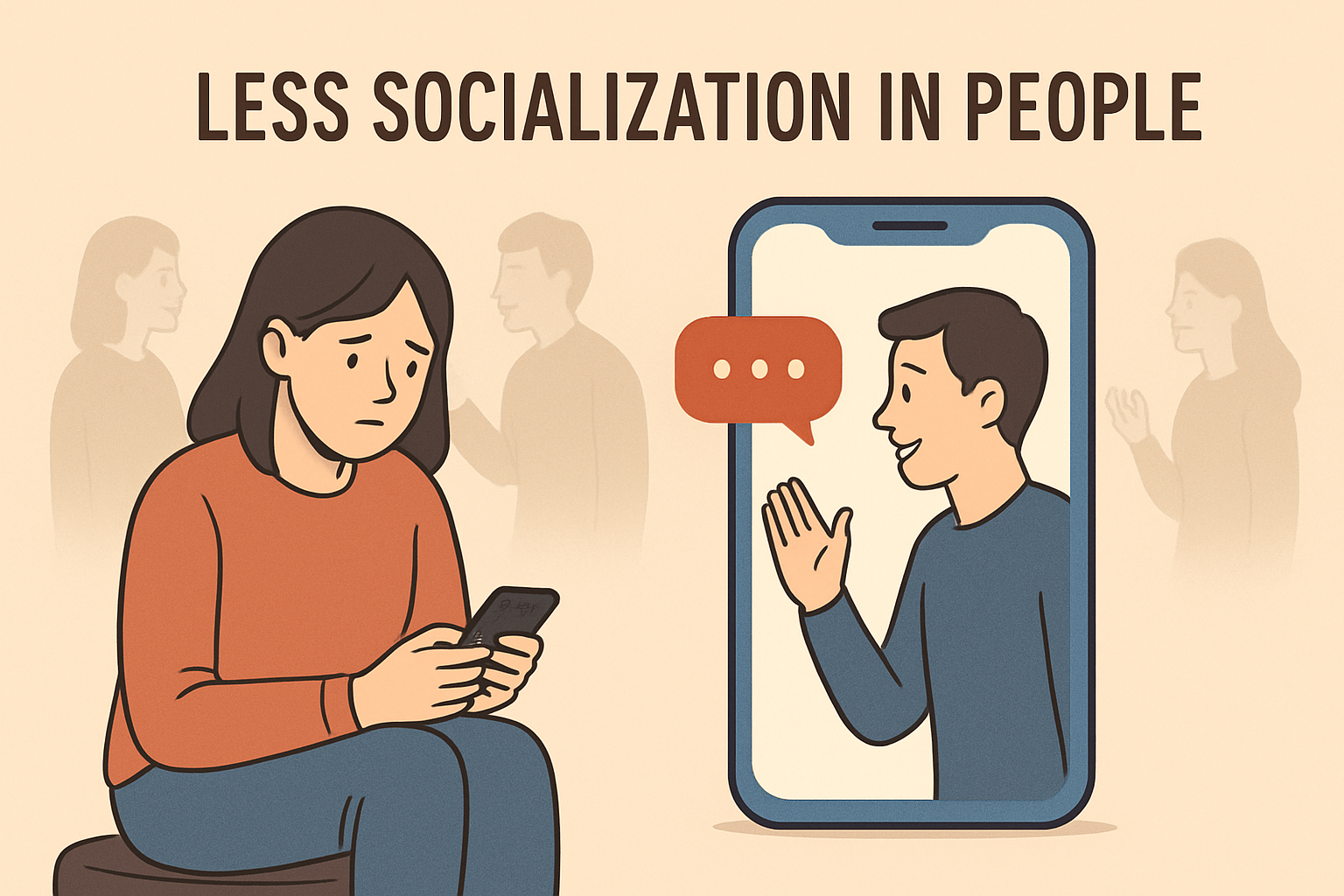Introduction
In an age dominated by technology, people are more connected than ever, yet increasingly isolated. While smartphones, social media, and virtual communication tools have made interaction effortless, they’ve also led to a decline in genuine, face-to-face socialization. The phenomenon of less socialization in people is becoming a defining characteristic of modern society, affecting relationships, mental health, and community bonding. Understanding the reasons behind this shift and finding ways to reverse it is essential for healthier living in today’s digital world.
The Digital Paradox: More Connected, Yet More Isolated
The digital age has revolutionized communication. With a single tap, we can talk to someone across the globe, attend virtual meetings, or share life updates instantly. However, this convenience comes at a cost — the decline of real-world social interactions.
Online communication often replaces physical meetups, and people now prefer texting or video calls over visiting friends. This overreliance on virtual interactions creates a paradox: while technology connects us globally, it disconnects us emotionally.
Reasons Behind Less Socialization in People
- Rise of Digital Entertainment:
Streaming platforms, online gaming, and social media occupy most of our leisure time. Instead of socializing outdoors or attending community events, many choose digital forms of engagement that offer instant gratification without human contact. - Work-from-Home Lifestyle:
The shift to remote work and online learning, especially after the pandemic, has significantly reduced face-to-face communication. Virtual meetings have replaced casual office chats, creating professional distance and emotional fatigue. - Social Media Illusion:
Social media gives the impression of staying connected, but it often leads to superficial relationships. Liking photos or commenting on posts can never replace the emotional depth of real conversations or physical presence. - Urbanization and Busy Lifestyles:
In cities, long work hours, traffic, and tight schedules leave little time for socializing. The hustle culture promotes individual success over collective bonding, leading to emotional isolation. - Mental Health Issues:
Anxiety, depression, and social fear discourage people from interacting in person. The comfort of digital communication provides an escape from real-world vulnerability but increases loneliness in the long run.
Consequences of Reduced Socialization
- Emotional Loneliness:
Human beings are social creatures. When social interactions decline, feelings of emptiness and loneliness grow stronger, affecting emotional well-being. - Decline in Communication Skills:
Over-reliance on texting and online chats reduces the ability to express thoughts and emotions clearly. Many struggle with maintaining eye contact or engaging in meaningful conversations. - Weakened Relationships:
Friendships and family ties weaken without real-world bonding. Digital interactions lack emotional warmth, leading to misunderstandings and a sense of detachment. - Increased Mental Health Challenges:
Research shows that isolation contributes to depression, anxiety, and low self-esteem. The absence of social support systems makes it harder for individuals to cope with stress. - Loss of Empathy and Community Spirit:
As people spend less time in community gatherings, volunteering, or shared activities, empathy and collective responsibility diminish — making society more fragmented and self-centered.
How to Encourage More Socialization
- Limit Screen Time:
Set boundaries for digital usage. Spend specific hours offline daily to reconnect with real-life surroundings. - Plan In-Person Interactions:
Make time for face-to-face meetings with friends and family. Simple activities like a walk, coffee meet-up, or game night can strengthen bonds. - Engage in Group Activities:
Join clubs, fitness groups, or hobby classes that encourage interaction. Shared interests create natural opportunities for communication. - Practice Active Listening:
When interacting, focus fully on the conversation. Avoid distractions like checking phones while talking. - Encourage Community Involvement:
Participate in local events, charity drives, or neighborhood programs. These activities foster a sense of belonging and shared purpose.
Conclusion
The issue of less socialization in people reflects a deep imbalance between digital convenience and human connection. While technology continues to evolve, it’s crucial to remember that emotional well-being depends on authentic relationships. True happiness and support come from meaningful interactions, empathy, and shared experiences — things no screen can replace.
By consciously stepping away from virtual spaces and engaging more in real-world connections, we can rebuild the social fabric that defines humanity. The future of healthy living lies not just in technological advancement but in rediscovering the joy of togetherness.

